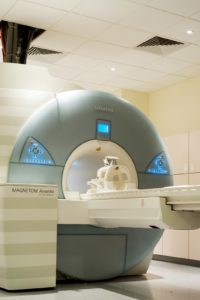People who are born with a pathogenic (disease-causing) variant in the TP53 gene have a very high lifetime risk of developing cancer – almost 100% for women and 75% for men. The SIGNIFY study, which reported last year, found that whole body Magnetic Resonance Imaging (WB-MRI) in people known to carry a pathogenic variant in the TP53 gene was a useful way to screen for cancer. The research reported here followed the people enrolled in SIGNIFY for a year to look at the psychological impact of undergoing WB-MRI screening. Satisfaction with screening was high, and screening did not have adverse psychosocial outcomes. The results therefore support the use of WB-MRI as a screening approach. (By Dr Elizabeth K Bancroft, https://jmg.bmj.com/content/early/2019/11/07/jmedgenet-2019-106407 )
Psychosocial effects of whole-body MRI screening in adult high-risk pathogenic TP53 mutation carriers: a case-controlled study (SIGNIFY)
(Visited 165 times, 1 visits today)
